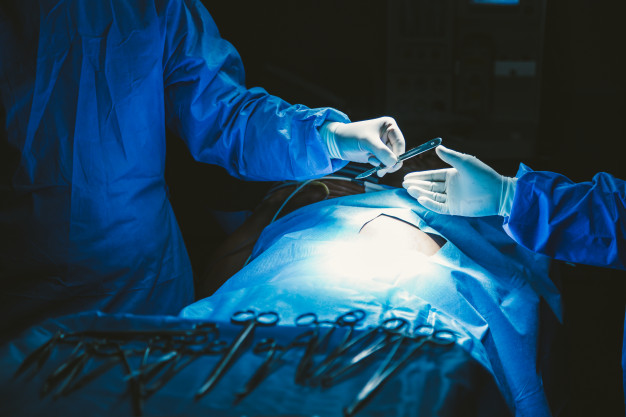Minimally Invasive Surgery is a technique which allows the surgeon to use techniques which will reduce the size and the number of cuts needed to perform a surgery. It has been proven to be safer than an open surgery. Minimally invasive surgery enables less blood loss during surgery, faster recovery, reduced hospital stay and healing in comfort.

Traditional surgery involves a large cut in order to visualize the inside of the body. In minimally invasive surgery, the surgeon uses small instruments, lights and cameras which fit in through small cuts on the skin. This allows the surgeon to perform the operation without having to go through skin, muscle and other tissue.
Minimally invasive surgeries also include robotic surgeries. Robotic surgery allows for better control and precision over the surgery. Robotic surgery is performed with the use of an electronic operating system like a computer. The surgeon will control the surgery through a high definition camera and robotic arms which are fitted with specialized tools.
The primary advantage of robotic surgery over laparoscopic surgery is that the surgeon can view the operating field in a 3 dimensional mode. It allows better control for the surgeon to perform delicate procedures with precision with the special softwares installed.
Non- robotic surgeries are known as laparoscopic (‘keyhole’), endoscopic or endovascular surgery. In these surgeries, rather than use robotic arms, the surgeon himself guides the instruments.
Minimally invasive techniques are useful for the following disease conditions:
Lungs
Urologic System
Gynaecologic System
Digestive System
Neurological System
Minimally invasive surgery can be performed on an outpatient basis which means that the patient does not have to be admitted in the hospital prior to surgery, and may return home on the same day if there are not complications. Here is a little about how to prepare for the day of surgery:
After surgery
Although recovery after minimally invasive procedures is short, it may still take about 6 weeks or longer before you feel like yourself again. Here are some things which you can do to help with a full recovery in the days following your surgery: